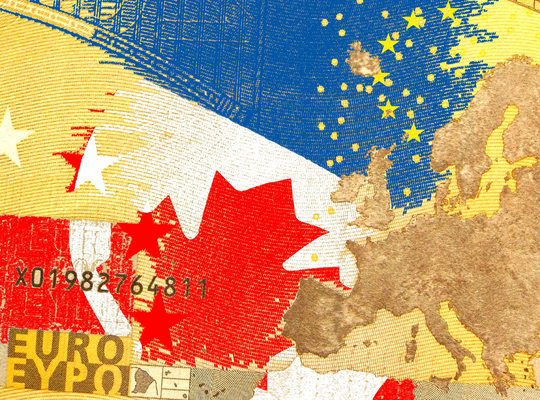You are here
Flanders approves EU free trade agreement with Canada

The Flemish Government is giving its approval to the signature of the Comprehensive Economic and Trade Agreement (CETA), a new free trade agreement between Europe and Canada. The signing is set for 27 October at the EU-Canada summit. “For Flanders, this trade and investment agreement is of the utmost importance,” emphasises Flemish Minister-President Geert Bourgeois. “In 2015, Flanders exported 1.75 billion euros’ worth of goods to Canada. Last year, there were also six Canadian investments in Flanders. Our companies - including the SMEs and the agricultural sector - will undoubtedly only benefit as a result.”
Earlier this year, the Canadian minister of Trade stated that the CETA would lead to a 23% increase in the bilateral trade in goods and services between Canada and the EU. For Minister-President Bourgeois, the advantages of the agreement are already clear: “Not only are as many as 99% of the customs duties being discontinued, our companies will also be able to freely offer their services in Canada. And Flemish architectural and other diplomas will from now on be recognised there. CETA also allows Flemish companies, such as our dredging companies, to compete for Canadian government contracts, and that includes at every level: state, province and city.”
Precautionary principle remains in place
In all of this, the precautionary principle that we hold so dear in the EU will remain solidly in place. “All cultural and audio-visual services are excluded from the agreement,” Geert Bourgeois says. “In the draft agreement there is a robust chapter on sustainable development. And all our standards in the field of employment legislation, environmental legislation and food safety are legally set in stone. Finally there is specific protection against liberalisation of education, welfare and healthcare services.”
Transparency and responsibility
The negotiations themselves were concluded back in August 2014, but were subsequently re-opened in order to align the disputes procedure even more closely with the principles of transparency and responsibility. For example, use will no longer be made of ad-hoc arbitration. Instead there will be a permanent bilateral tribunal, the judges of which are appointed in advance by the EU and Canada. “This makes it clear that the CETA is a state-of-the-art agreement that will increase prosperity in Flanders, the EU and Canada. I am counting on the other entities in this country to also tip their hat in favour of this agreement,” the Minister-President concludes.

